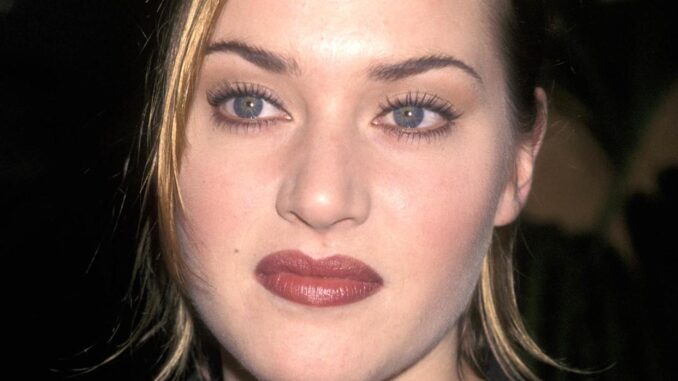
The Unfurling Banner: Why a New Generation Refuses to Stay Silent
Kate Winslet’s voice, weathered by years in an industry that often prizes impossible ideals, carries the weight of experience. When she observes that a new generation of actors refuses to stay silent on body shaming, it’s more than just a passing comment; it’s a profound recognition of a seismic shift, a breaking of the dam that once held back a torrent of silent suffering. Winslet, a woman who famously endured the cruel "too fat for Jack" jibes and relentless scrutiny of her physique throughout her career, understands the suffocating pressure of the old guard. But the landscape has changed, and with it, the very definition of resilience. This new refusal to be silent isn’t born of mere rebellion; it’s the culmination of increased societal awareness, the democratizing power of digital platforms, and a deep, collective yearning for authenticity that prioritizes mental well-being over manufactured perfection.
For Winslet and her peers, the unspoken contract was clear: grin and bear it. To speak out against the relentless commentary on their bodies – too thin, too plump, too curvaceous, too angular – was to risk being labeled "difficult," unprofessional, or ungrateful. Publicists advised diplomacy, agents feared backlash, and the media, a voracious beast, feasted on any perceived flaw. The battle was often a private, agonizing one, fought in the confines of changing rooms, therapist’s offices, and late-night anxieties. Actresses learned to contort their bodies, their diets, their very selves, into the ever-shifting mold of what was deemed "acceptable" or "marketable." The silence, in this context, was not consent; it was a survival mechanism, a polite capitulation to a system that demanded conformity above all else.
But the digital age arrived, a double-edged sword that amplified both scrutiny and the capacity for collective response. While social media could, and still does, provide a terrifyingly direct conduit for body shaming, it also offered a platform for those targeted to speak back, to bypass traditional media gatekeepers, and to find solidarity. This burgeoning vocalization isn't merely reactive; it's proactive, driven by a generation that grew up with the internet’s omnipresence, acutely aware of the curated fakery prevalent online, and therefore, hungrier than ever for genuine connection and unvarnished truth.
Take Florence Pugh, a luminous talent whose career trajectory defies convention. When she wore a sheer, hot-pink Valentino gown that revealed her nipples to the world, the internet erupted with predictable, misogynistic commentary. But Pugh did not retreat into silence. Instead, she turned her Instagram into a pulpit, posting: "I knew when I wore that incredible Valentino dress that there was no way there wouldn't be a commentary. Whether it be negative or positive, we all knew what we were doing. I was excited to wear it, not a jot of me was nervous. … It's unsettling to see how easily men can totally destroy a woman on social media, with a simple swipe. I'm human and I'm not afraid to show my body." Her words weren’t just a defense; they were an act of defiant ownership, a refusal to shrink herself or apologize for her natural form. She articulated, with unflinching candor, the very power imbalance that Kate Winslet had once navigated in solitude.
Similarly, Lili Reinhart, another voice from this new cohort, has repeatedly spoken out against the pervasive use of Photoshop in celebrity imagery and the unrealistic beauty standards it propagates. She doesn't just critique; she advocates for transparency and self-acceptance, recognizing the profound impact these images have on the mental health of her young audience. By refusing to participate in the charade of digital perfection, she sends a clear message: the pressure to be flawless is a manufactured illusion, and it's okay, even vital, to reject it. These actors understand that their platforms carry immense weight, and they consciously choose to use that weight to uplift, challenge, and educate, rather than passively endure.
The "why" behind this shift is multifaceted. It stems from a greater societal emphasis on mental health, recognizing that the constant barrage of body shaming chips away at self-esteem and fuels eating disorders and anxiety. It's emboldened by movements like #MeToo, which cracked open the culture of silence around abuse and exploitation, demonstrating the power of collective voices demanding accountability. And crucially, it's inherent to the values of a generation raised in an age of advocacy, where authenticity is currency, and challenging established norms is not just accepted, but expected. They are less afraid of being perceived as "difficult" because they prioritize their truth and their well-being over archaic industry expectations.
Kate Winslet’s observation is, in essence, a recognition of a revolution. Where she and her peers once had to silently absorb the blows, this new generation is fighting back, not just for themselves, but for every young person who sees their reflection in the mirror and hears the echoes of impossible standards. Their refusal to stay silent is an unfurling banner, declaring that bodies are not commodities to be critiqued, but vessels to be celebrated. And in that defiant roar, there is not only liberation for the individual but a powerful, transformative call for a more empathetic, inclusive, and authentic world. The curtain is being pulled back, revealing not just the true faces of these actors, but the possibility of a future where the authentic self is not just tolerated, but celebrated.